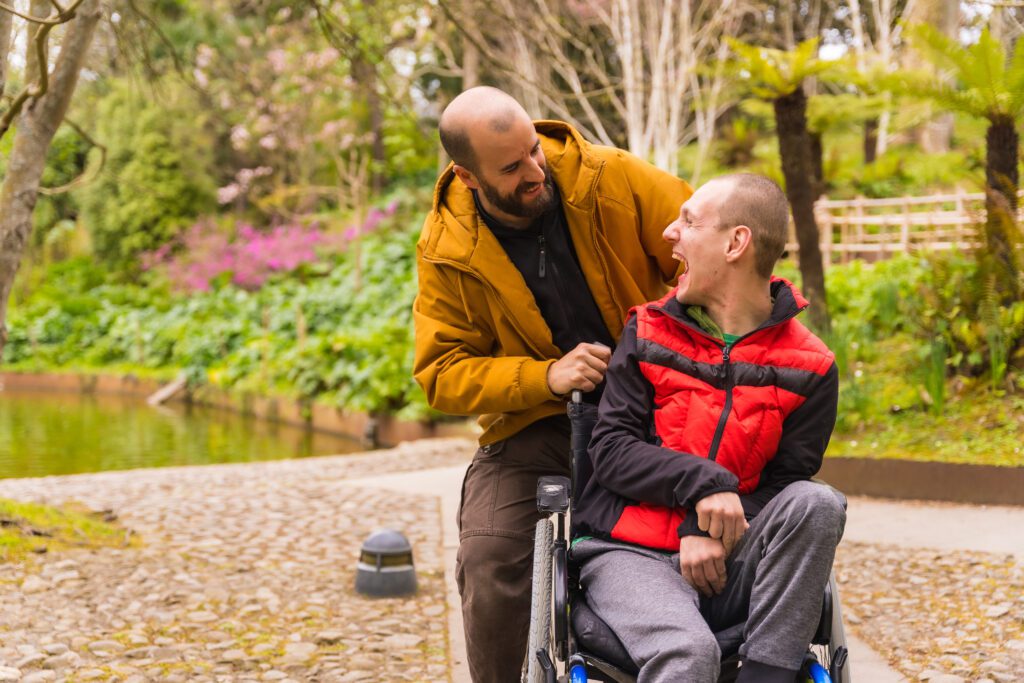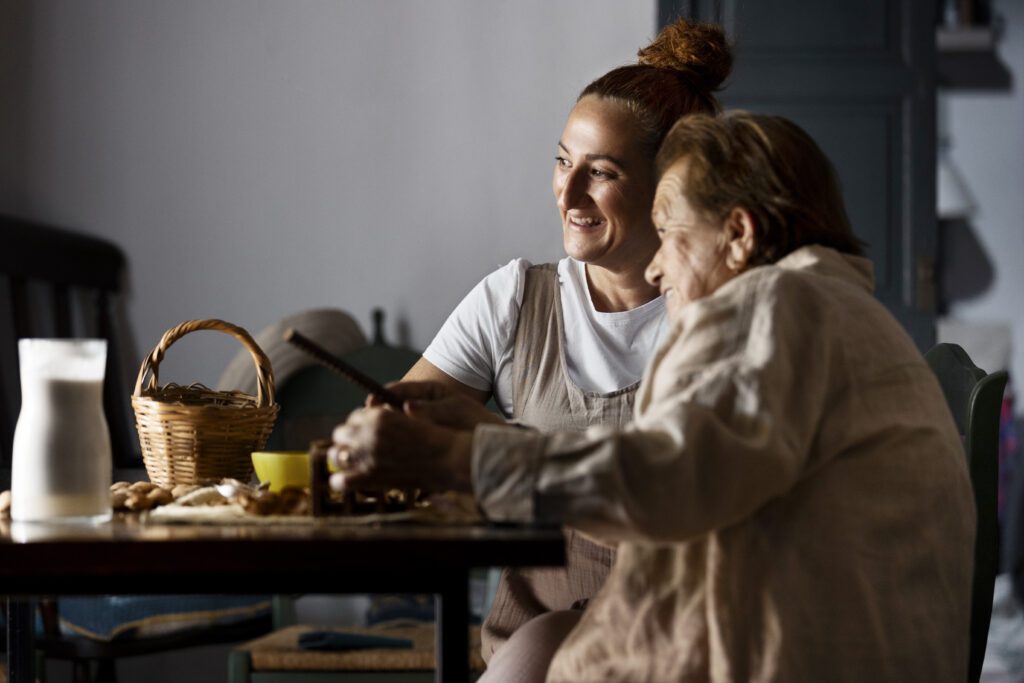Understanding the past is pivotal for shaping a more inclusive future, especially when supporting those with disabilities. Disability History Month, observed from November 16 to December 16, 2023, enables us to explore and remember the disability rights movement over time.
During this month, new ideas surface, influencing healthcare workers positively and reinforcing the commitment to enhancing the quality of life for those with disabilities.
However, this time of year does not solely consider those with disabilities. It also addresses the individuals who care and support them, such as live-in carers.
Live-in care offers an ideal solution for individuals with disabilities, providing continuous support within the familiar confines of their homes. 24-hour live-in care ensures a safe and nurturing environment for long-term assistance or post-treatment recovery.
So, what is Disability History Month, and how can you support it?
This blog reveals everything you need to know about Disability History Month 2023.
What is Disability History Month?

As mentioned, Disability History Month is an annual recognition of the disability rights movement. From November 16 to December 16, 2023, its theme focuses on disability, children, and youth. This observance challenges societal perspectives on disability, scrutinising historical mistreatment and prejudice. It enables businesses, organisations, and individuals to find new healthcare and educational staff solutions, especially for the younger generation.
This month encourages a collective examination of how we view and treat individuals with disabilities, fostering a sense of responsibility among businesses to contribute to positive change.
Why You Should Support Disability History Month in 2023

This event offers an opportunity to raise awareness about the often unseen challenges faced by individuals with disabilities. Disability History Month acknowledges how not all disabilities are visible, and therefore, people can require additional support or requirements without them being immediately apparent.
Equally, Disability History Month recognises the staff, such as live-in carers, that support individuals with disabilities, as well as those who have their own additional needs.
However, this time also means we can acknowledge how, despite the progress made, we must also recognise the need for ongoing evolution. Getting involved in Disability History Month means we can contribute to the momentum for change, ensuring that procedures and practices become increasingly inclusive.
The Role of Live-In Carers and Promoting Inclusivity

Live-in care services promote inclusivity in various ways. Beyond providing companionship, these carers offer support for health issues, creating an affordable alternative to care homes. They enable individuals to remain in the comfort of their own homes, encouraging independence even in the face of challenges.
From managing household chores to medication and personal care, live-in carers undertake diverse responsibilities, including specialised tasks like hoisting. Their attention remains solely on their client, allowing them to find the solutions to meet their needs.
You can also find live-in carers for young people to help with various disabilities and conditions, including Down Syndrome, Cerebral Palsy and Multiple Sclerosis, to name a few.
Milestones in Disability History

There are many milestones within disability history, including the following:
- British Deaf and Dumb Association, 1890
Deaf people formed the British Deaf and Dumb Association on July 24, 1890, promoting and protecting British Sign Language (BSL). Whilst people objected to including the term ‘dumb’, this name lasted until 1971, when it became the British Deaf Association.
- Formation of the Disabled Persons Employment Act, 1944
This act acknowledged the rights of disabled individuals in the workplace, laying the foundation for equal opportunities.
- Recognition of the Paralympic Games, 1960
The Paralympic Games in Rome highlighted the athletic skills and achievements of disabled individuals. This recognition challenged societal perceptions.
- The Disability Discrimination Act, 1995
Under this law, people with disabilities became legally protected against discrimination in various circumstances, including employment. Service providers must make reasonable adjustments so disabled people can access those services. The law was later amended in 2005.
- The Representation of the People Act, 2000
The passing of this law ensured patients in mental hospitals could vote unless they had committed a crime.
- Recognition of BSL, 2003
The government recognised British Sign Language as a full, independent language, resulting in more people training to become BSL interpreters and tutors.
- Launch of the ‘Hardest Hit’ Campaign, 2011
Approximately 8000 individuals with disabilities marched on Parliament concerning welfare cuts. This event was organised by the UK Disabled People’s Council and the Disability Benefits Consortium.
How You Can Support Disability History Month

There are several ways to support Disability History Month, including the following:
-
Wear Purple
Purple Tuesday is an ongoing initiative dedicated to disability awareness and inclusivity. Wear the colour to demonstrate your commitment to a more inclusive future.
-
Share Resources
Contribute to the cause by sharing resources that promote understanding and awareness. Sharing resources helps to dismantle stereotypes and foster empathy.
-
Organise a Lunch and Learn Session
Promote awareness in your community by organising sessions that shed light on the significance of Disability History Month. Lunch and learn sessions provide a platform for open dialogue, encouraging a deeper understanding of the challenges faced by individuals with disabilities.
After reading this blog, you should better understand what this month stands for and the ideas Disability History Month can generate to promote an inclusive society.
At Ivy Palmer, we offer inclusive care, recognising the varied disabilities and individual needs of our clients. We provide compassionate carers, ensuring a tailored match for unparalleled support and heightened independence.
Contact us today for more information on how our bespoke live-in carers can support you or your loved one.
